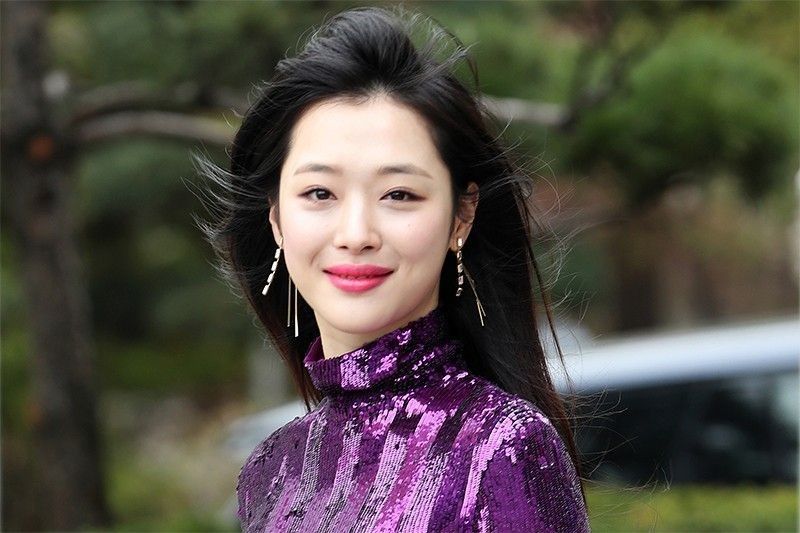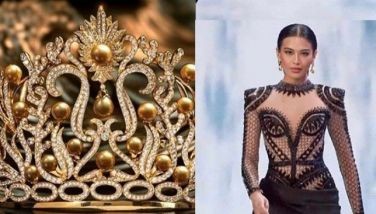The fault in our stars? A look into South Korea's K-pop idol and anti-fan culture

MANILA, Philippines — For an industry where standing out spells the difference between international stardom and musical oblivion, the Korean pop scene has always been unable to control the callous, even dangerous remarks fired at idols – whose behavior deviates from or fails public expectations.
The tragedy of the widely-publicized Monday passing of Choi Jin-Ri, better known as Sulli of girl group f(x), lies with implications that it could have been prevented.
Even as investigation results remain pending, the circumstances of the K-pop star’s death have led the police to believe that it was caused by suicide. Sulli was said, in a police statement, to have been suffering from “severe depression,” and the digital trail of her social media posts reveal a history of cyber-bullying by Korean netizens.
Suicide is definitely a complex, multi-dimensional issue that cannot be solely attributed to any one factor. However, apologies that arrived ahead of official investigation results suggest the guilt and partial accountability of the faceless “everystan” – a portmanteau of everyman and stan.
Under watch
K-pop idols are always under the public eye in South Korea. Rising fame is invariably accompanied by criticism and scandals, no doubt exaggerated due to the popularity of idols and the weight such a title is known to hold.
Entering the business means signing an invisible unilaterally-favorable contract where one consents to be subject to audience scrutiny and liable always to fans’ demands. It’s the saying “the customer is always right” on steroids.
The visual-centric K-pop medium underscores the importance of aesthetic appeal above all. Under this system, image is everything. How you look. How you act. How you dress. How you present yourself in public.
The public gaze may be absent say when you donate album earnings to the underprivileged, but it will certainly shift your way the moment you stumble. In other words, you sign up for certain hate with no promise of appreciation.
Sulli, as the “visual” of f(x), carried a position unique to K-pop bands that meant being the focus of attention in stage performances, music videos, and other forms of promotion like commercial films or CFs.
As a child actress who started her career at the tender age of 11 and always managed to find herself in the camera’s line of sight, she seemingly fit the role.
Eventually, this backfired, Sulli said following her departure from f(x). Always being in the limelight meant she couldn’t let her guard down and the singer-actress was viewed and treated as an industry veteran rather than a young woman who was still growing up, she lamented.
Where netizens lurk
Sulli received the short end of the stick when it came to her relationship with fans.
Despite the success and international recognition of f(x), as well as her solo activities like starring in the K-drama hit “To The Beautiful You,” the idol’s name has been dragged into countless controversies that deserve no further mention.
Sulli’s was an extreme case of cyberbullying, but it was no isolated experience. Her close friend IU – who wrote the song “Peach” in Sulli’s image – was also slut-shamed regularly.
Red Velvet's Yeri reacted live to a message of an anti-fan who wanted her dead because they thought she contributed nothing to the five-member group.
Momoland, which has gained popularity in the Philippines, is regularly bashed for perceived ill manners and anything netizens can throw at them.
Blackpink's Jennie and Itzy's Lia were separately criticized for unenthusiastic and subpar dancing. Edited videos with “evidence” of the former’s alleged laziness even trended on social media.
Twice's Jihyo, like many idols before her, was hounded by fans and media alike after it was revealed that she was dating a popular male idol. The group’s “J-line” consisting of its three Japanese members, including Mina who is on leave to focus on healing, was also subject to racist comments from Korean fans because of an external trade issue between Japan and South Korea.
Preceding “2nd generation” K-pop groups also didn’t escape hate during the peak of their popularity. SNSD's Yoona, despite being an icon in the industry, was accused of having an affair with PSY just because she was seen in a photo with a man that roughly resembled him.
All these scandals either emerged from or gave birth to more rumors in internet forums, threads and chat sites.
The hate has metastasized at this point. You need not go to the deep web or backread ancient posts to unearth a world known to K-pop idols.
All the dehumanizing, whether by sexualization or verbal abuse, is a Google search away.
Just as idols are held to high, difficult Korean standards, they are torn down as quickly in forums. Cyberspaces serve as a breeding ground of rape culture as perverts collectively discuss and salivate over the bodies of K-pop idols. They also serve as a court where cases of surgery, ugliness and lack of talent or personality are made.
Effect on idols
If anyone is left unconvinced by the anecdotal evidence, the data is staggering.
South Korea has one of the highest suicide rates globally and suicide is a leading cause of death among those under 40.
“Many suicides happen impulsively in moments of crisis with a breakdown in the ability to deal with life stresses, such as financial problems, relationship break-up or chronic pain and illness,” the World Health Organization said.
Additional factors strongly associated with suicidal behavior include experiencing conflict, disaster, violence, abuse, loss and a sense of isolation.
Sulli, who died at the age of 25, has triggered waves among Korean idols and fans alike to call for “kindness” in the country. Her passing is also notable for following the death of her labelmate, SHINee’s main vocalist Kim Jong-Hyun, in 2017. He died at the age of 27.
Suicide is the leading cause of death among 15 to 29 year-olds worldwide. Most K-pop idols are in their late teens or early 20’s
Last year, the Department of Health, in partnership with the World Health Organization and the Natasha Goulbourn Foundation, launched "Hopeline Project" which aims to provide a support system for those suffering from depression.
The numbers to call are the following: (02) 805-HOPE (4673); 0917 558 HOPE (4673) and 2919. These numbers are toll-free for GLOBE and TM subscribers.
- Latest
- Trending

































